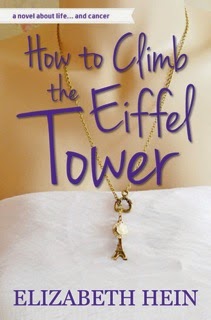Friends, today
Karlene Petitt is here to share with us about her own personal journey to become a pilot and author. Her book
Flight to Success: Be the Captain of Your Own Life is available now. Enjoy the inspiration!
Flight To Success is a journey we all experience. My journey began when I was nine-years-old and a friend said, “You can’t be a pilot. Girls can’t do that.” I stood with hands on hips and said, “Yes I can!” We argued. Game over, and I kicked my friends out of the house. But the challenge was on. I did not understand until years later, but that moment was my inciting incident. I faced the choice to take that challenge, or not. Fear, logistics, and many additional reasons as to why becoming a pilot was impossible sprouted their ugly heads.
Just like the protagonists in our stories we are all faced with those moments of decision—our call to adventure. These choices may present themselves in a challenge, health issues, a moment of inspiration, or perhaps dissatisfaction with the way life is and we want more. Something will happen in your life and you will be faced with the decision to accept the calling, or not.
Then obstacles and challenges arrive—the time when the hero of any story must confirm their commitment. When the protagonists’ journey becomes difficult, do they quit or dig deep and press on? We all know that the greatest struggles, answered with dedication and perseverance, followed by success make the best stories. Isn’t life the same?
You are writing your story—it’s called life and you are the hero. There will be challenges along the way—will you quit? You might get on the wrong plane—will you enjoy the journey and reschedule another destination at a later date, or complain? You might face a thunderstorm that will delay your trip—will you wait it out or give up? And when you achieve success and write that first book, will you quit or write another?
Julie was gracious enough to enable me to share my most recent work with you—Flight To Success, Be the Captain of Your Life. What is this book about? It’s about taking control of your life and mastering steps to reach success. One reader said…
“This is not book about flying; it is a story about life, and living life, and making the right (and difficult) choices. Flight to Success is entertaining, engaging, thought provoking, and not an easy book to put down. The highest compliment I can make is that I will buy another copy to give to my wife, mostly because I don’t want to share my only copy.” Jeffrey L. Roehr
That little girl became an airline pilot. I’m also a mother, grandmother, wife, have earned two masters degrees, published two novels, and currently pursuing a PhD. Have there been struggles along the way? Of course—experience teenage daughters and you can check off the challenge box. I have also started over eight times; seven of my previous airlines are now out of business. The most recent challenge was bringing my passion to market while attending a doctorate program, and working. This book was essential.
Flight To Success, Be the Captain of Your Life came about because I wanted something age appropriate for those students I speak to about fulfilling their dreams. (My aviation thrillers are of adult content.) I want to help and support our future generations to get on the right flight path for their lives. Thus, stories of my life and others’ lives found their way into the pages with real, inspiring, and motivational lessons. Included are secrets to success such as flight planning your life, listening and learning, and how to deal with fear, plus so much more. There are lessons that can help anyone from young to old achieve their dreams.
Success is about how we live today, not what we did yesterday. It’s about living in the moment with purpose, integrity, and commitment. It’s about the journey, and extending a helping hand to lift another up; sharing lessons to help them reach their dreams. Success is about the Flight:
Fulfillment * Love * Integrity * Gratitude * Happiness * Truth.
Dream. Believe. Achieve.
Anything is possible.
Enjoy the Journey!
XO Karlene
Karlene Petitt is currently an A330 international airline pilot living in Seattle. She is type-rated on the B747-400, B747-200, B767, B757, B737, B727 and A330 aircraft. She holds MBA and MHS degrees, and is currently working on her PhD at Embry-Riddle Aeronautical University in Aviation, with a focus on safety. She has flown for Coastal Airways, Evergreen, Braniff, Guyana and Tower Air. She has instructed at America West Airlines, Premair, Guyana, and has also flown and instructed for a northwest airline on the 747-400 and 747-200. She has spent 21 years training pilots, and has been instrumental in training program development at multiple airlines. She is a mother of three grown daughters and grandmother of seven.
Thanks so much, Karlene! You're truly an inspiration.
Friends, do you remember your own inciting incident? Were there obstacles on your personal journey? How did you handle them? Please share!


















